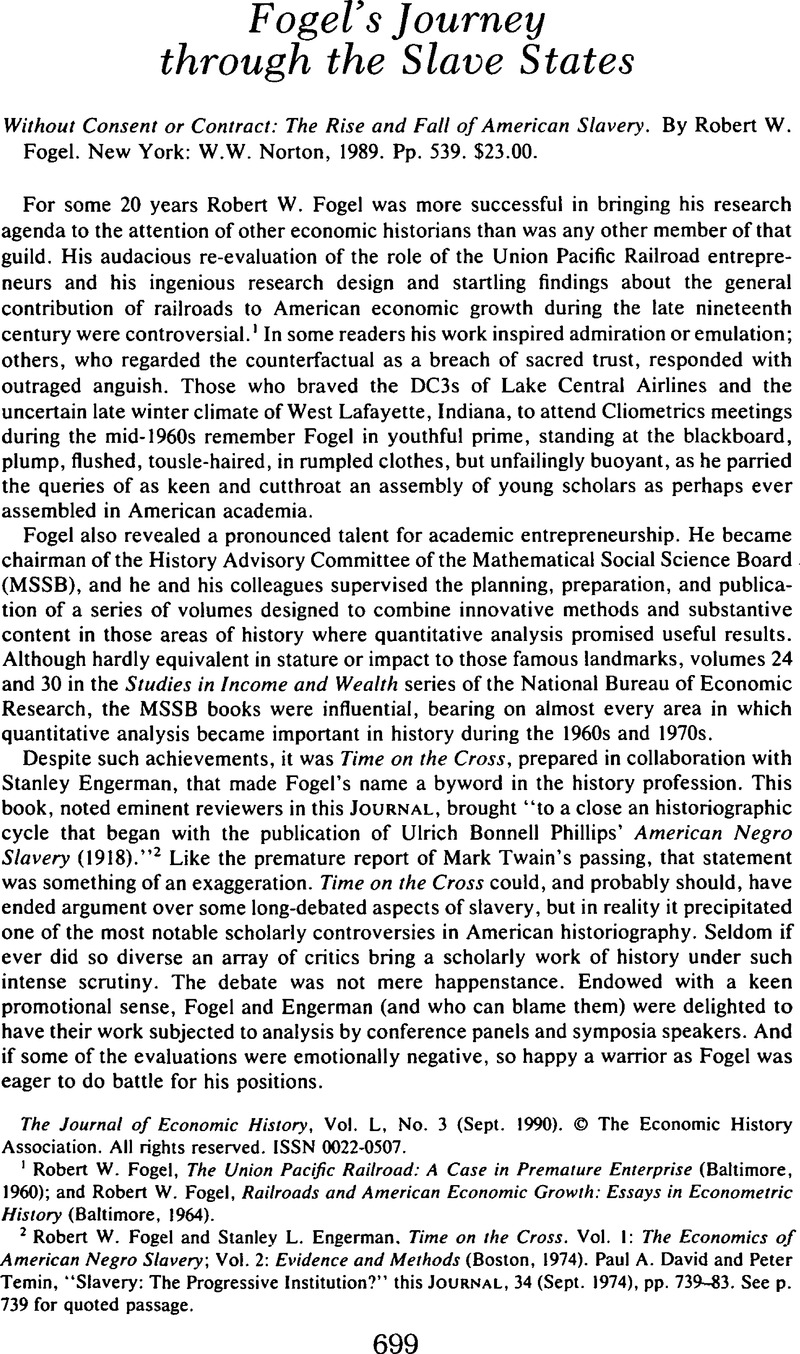Article contents
Fogel's journey through the slave states
Published online by Cambridge University Press: 03 March 2009
Abstract

- Type
- Review Article
- Information
- Copyright
- Copyright © The Economic History Association 1990
References
1 Fogel, Robert W., The Union Pacific Railroad: A Case in Premature Enterprise (Baltimore, 1960)Google Scholar; and Fogel, Robert W., Railroads and American Economic Growth: Essays in Econometric History (Baltimore, 1964).Google Scholar
2 Fogel, Robert W. and Engerman, Stanley L.. Time on the Cross. Vol. I: The Economics of American Negro Slavery; Vol. 2: Evidence and Methods (Boston, 1974).Google ScholarDavid, Paul A. and Temin, Peter, “Slavery: The Progressive Institution?” this JOURNAL, 34 (09 1974), pp. 739–83. See p. 739 for quoted passage.Google Scholar
3 Fogel, Without Consen or Contract, p. 13.Google Scholar
4 Sutch, Richard, “The Treatment Received by American Slaves: A Critical Review of the Evidence Presented in Time on the Cross”, Explorations in Economic History, 12 (10 1975), pp. 335–438.CrossRefGoogle Scholar See p. 339 for quote. More extended development of the critique is to be found in David, Paul A. et al. , Reckoning with Slavery: A Critical Study in the Quantitative History of American Negro Slavery (New York, 1976)Google Scholar; and Gutman, Herbert G., Slavery and the Numbers Game: A Critique of Time on the Cross (Urbana, 1975).Google Scholar
5 Pruett, John H. and McColley, Robert M., “Review”, Journal of Southern History, 40 (11 1974), p. 639.Google Scholar
6 Personal conversation with Allan G. Bogue.Google Scholar
- 4
- Cited by




